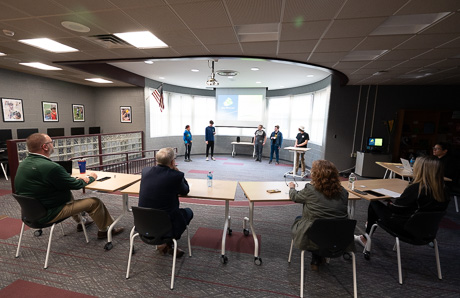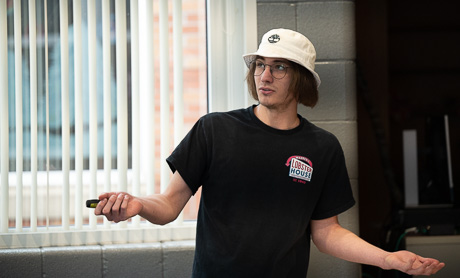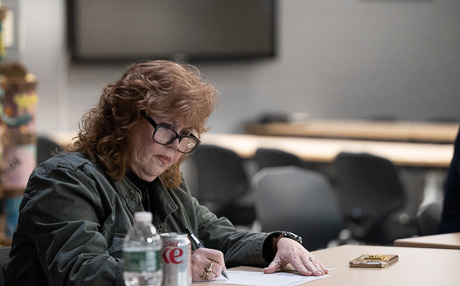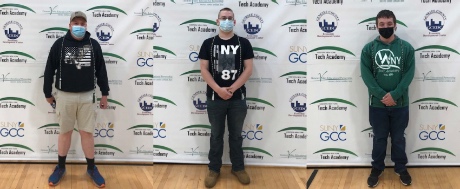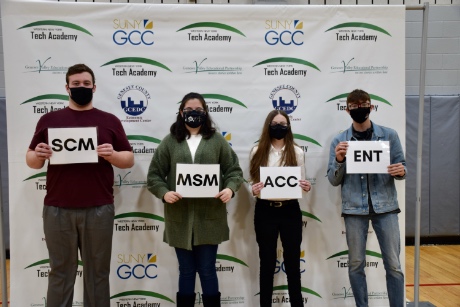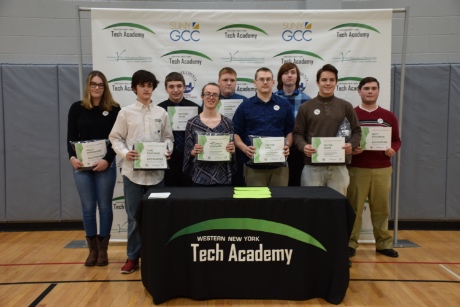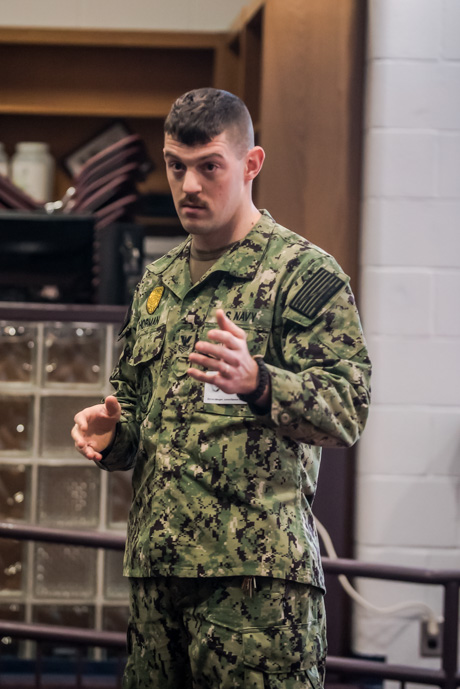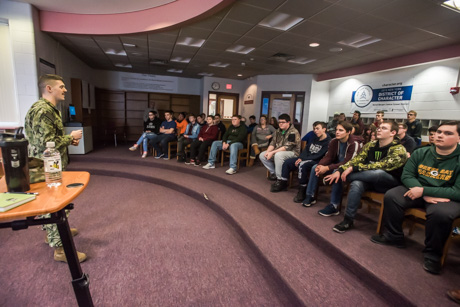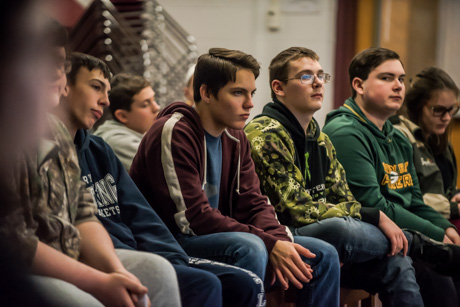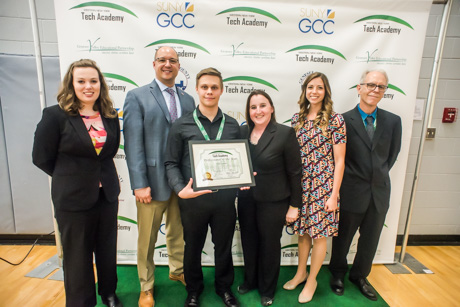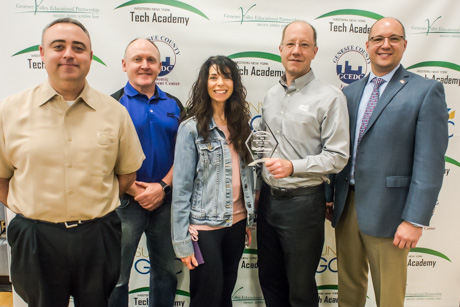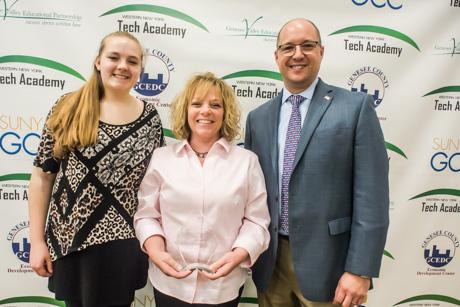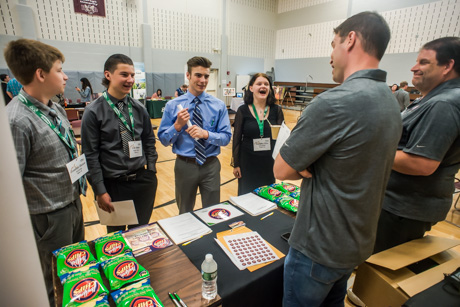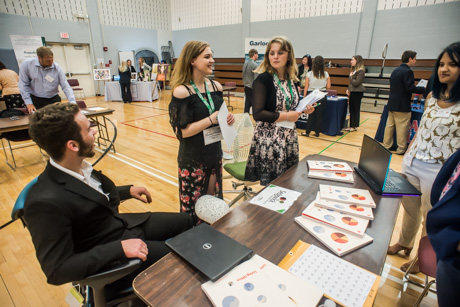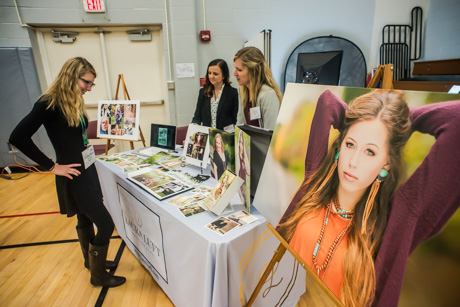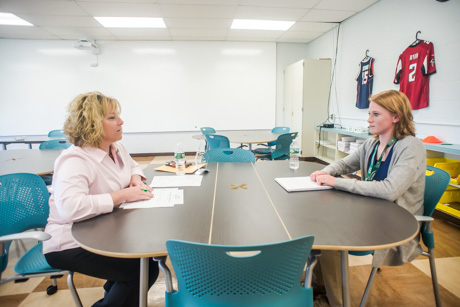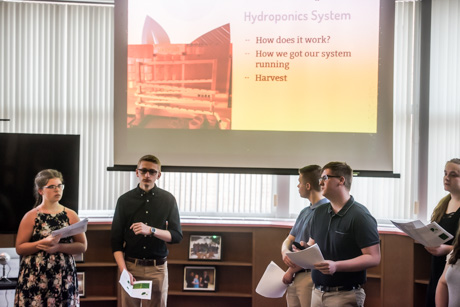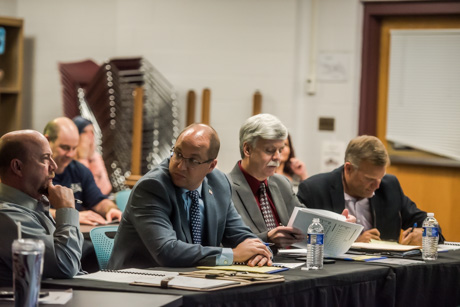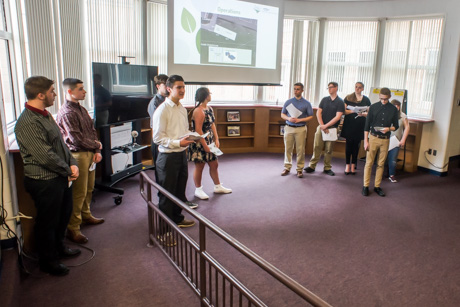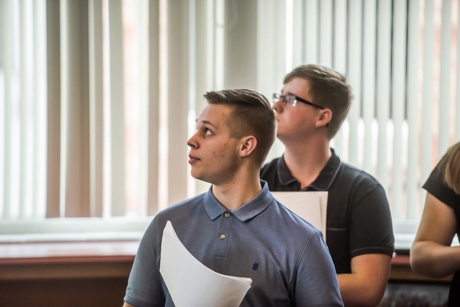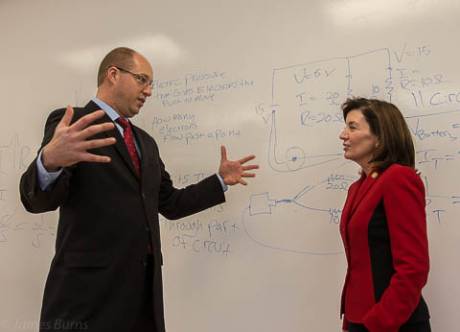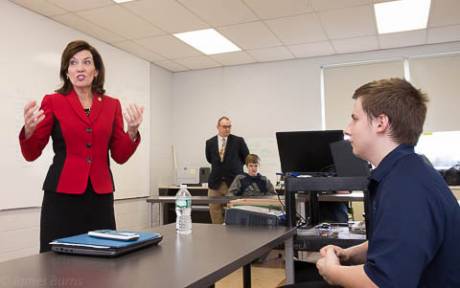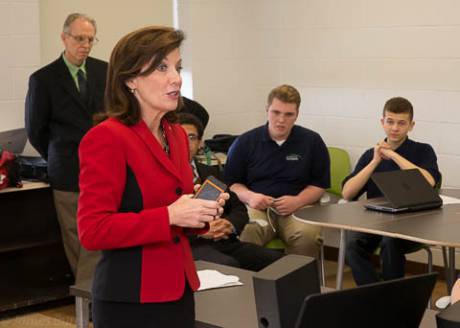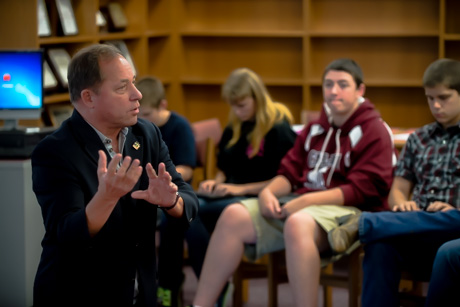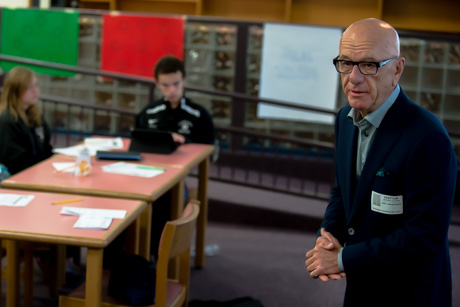A group of students in the WNY Tech Academy at Byron-Bergen High School can now be called entrepreneurs.
They've researched a business idea, wrote a business plan, built financial projections and stepped into their own version of the Shark Tank and walked out with a guaranteed $125,000 in financing for their planned business.
The business, Academy Greens, will grow spinach and tilapia in a greenhouse on the Byron-Bergen campus that will be equipped with an aquaponics system.
They will sell the spinach to the cafeteria at Byron-Bergen and to the culinary arts program at BOCES.
"There is an unlimited opportunity for success and there is so much to learn within the business itself," said student Kyle Goloskey. "I'm excited about the project because we’re able to provide food for local schools and it’s organic so it’s a clean project we don’t have to worry about contamination."
The students haven't quite figured out what to do with the tilapia yet, and under questioning from the "sharks" during their hour-long pitch, acknowleged that they didn't account for the preparation costs associated with selling fish.
The "sharks" were: Genesee County Economic Development Center CEO Steve Hyde, who was asked to represent the vegetable-processing company Bonduelle, which has a plant in Oakfield, for the purpose of the pitch review; and Paul Gister, manager of customer and community management at National Grid; Michael Gardinier, VP of operations at Farm Fresh First; and Thomas Schulte, principal of the WNY Tech Academy.
Hyde said Bonduelle will make an in-kind contribution of coaching and food-processing expertise to assist the students with their startup. Gister and Gardinier said they will take back recommendations for funding to their bosses and board of directors.
At the end of the presentation, Schulte announced that the budget for the WNY Tech Academy, which is funded through grants, has been rewritten for next year to make $125,000 available for the project. Any financial contribution from National Grid or Farm Fresh will backfill the WNY Tech contribution.
Hyde said he found the whole project exciting.
"Food is such a heartland for us," Hyde said. "We've got three industrial parks across the county that are being developed around food. On the entrepreneurial side, that is such a critical piece. We have the Med-Tech Center and the entrepreneurial zone for startups. That is an accelerator for businesses. Things like this help plant the seeds that spark things."
He praised the project-based learning experience.
Gardinier said the project is going to give the students a real hands-on experience in the world and in business that will benefit them when they start their careers. It is a bridge for them to connect their class work to the work environment.
And starting and running a business isn't easy, so the students will learn from the mistakes they make and the challenges they encounter.
"I fully expect them to hit problems," Gardinier said. "It’s important they get their network built around them. They’ve got some very key players with them now that have offered time and offered expertise to the project to help them get over those hurdles, so build your network and use it."
Noah Toal, 11th grade, said he likes the project because he gets to learn how businesses start and the sharks who asked challenging questions gave him an idea of what it takes to put a business together.
He plans to enter into accounting but might want to own his own business someday.
"I might think about starting my own business once I get out there more and start getting cash flow in, and I get more understanding of how this world goes," Noah said.
The primary goal of the project, Schulte said, is to provide a learning experience and bring together the three disciplines of the tech academy -- food-processing technology, supply chain management, and accounting -- into a single effort.
"From very early on we tried to talk about ourselves as a startup company and how important for every person on our team, staff, students, to play a role in making it become what the vision of it was from the very beginning," Schulte said. "I think the greenhouse is just going to be another example of -- to make it work, we’ve got to work to make it work."
